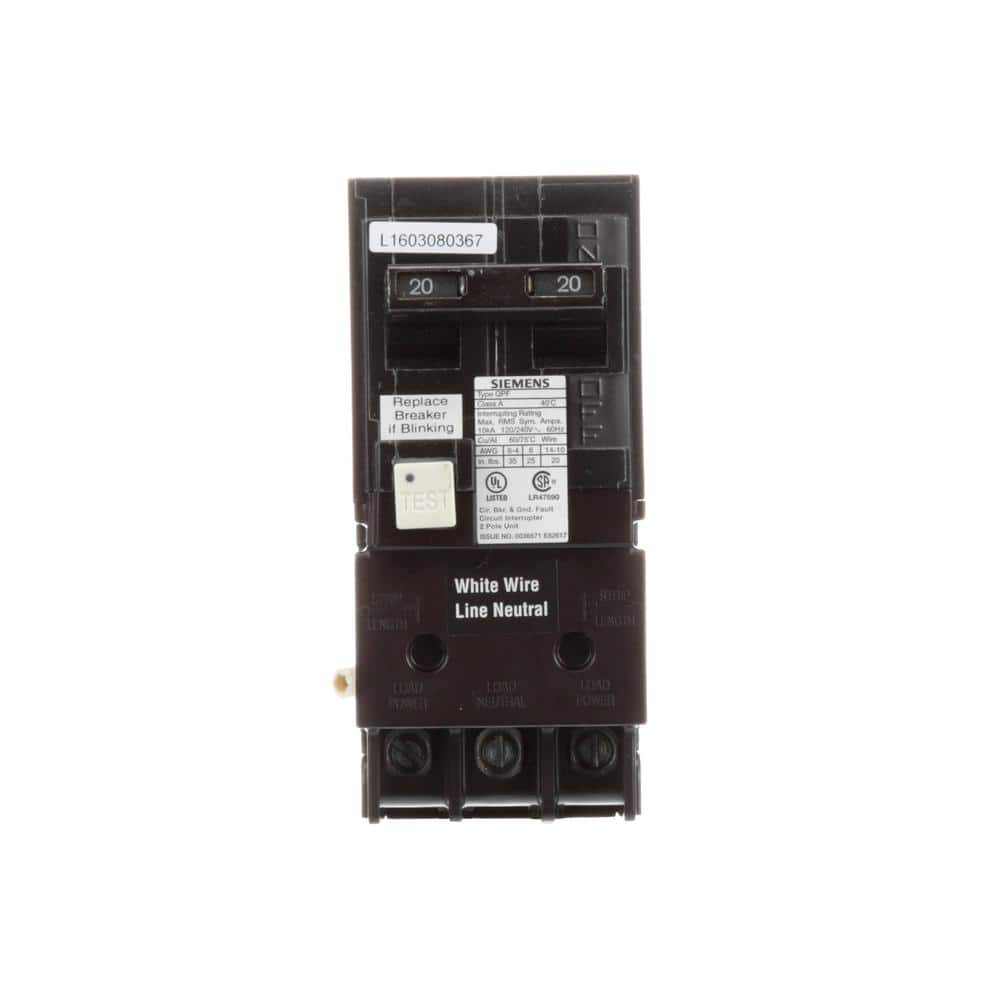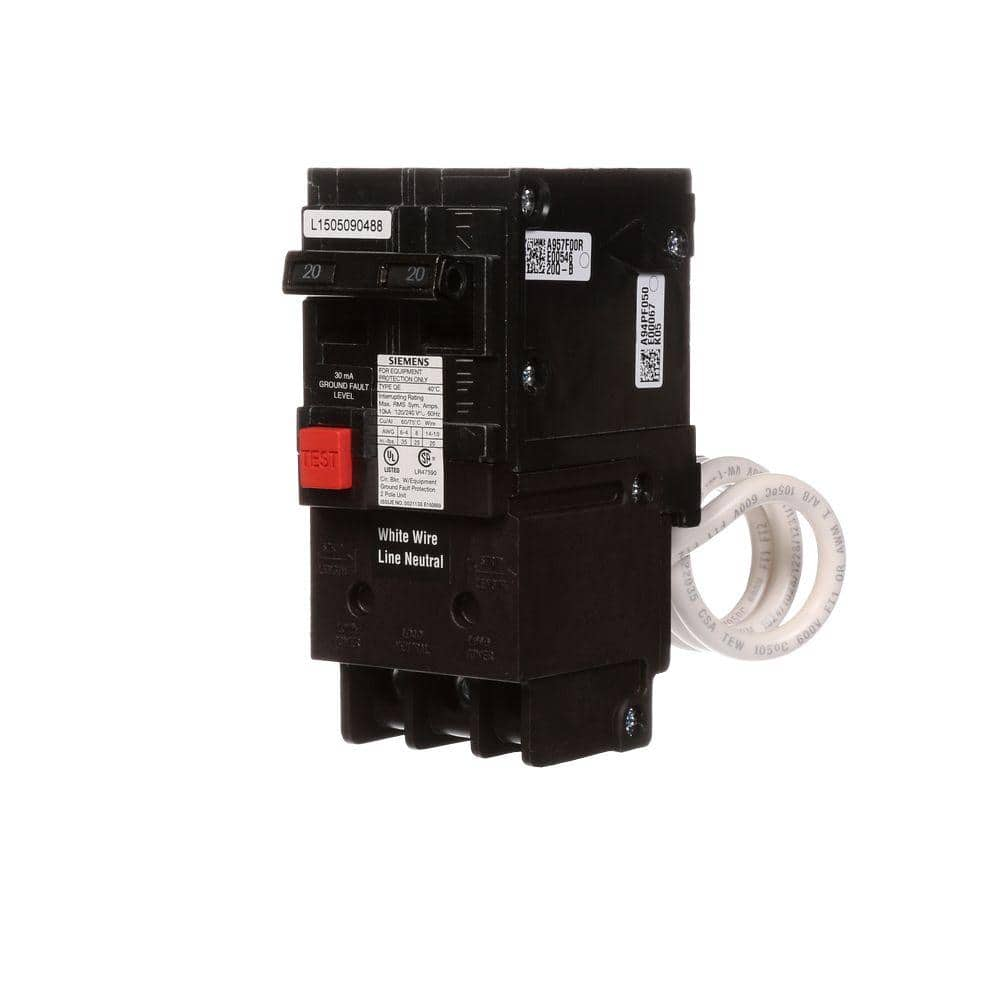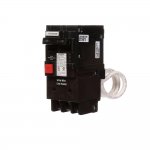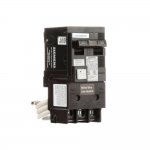I'm installing a Hayward Variable speed pump and boster pump for the cleaner and a heater. I will need a 230v 20 amp dual breaker. Siemens is the one that fits my old breaker box, but there are two versions
US2:QF220A

which is for personal protection and trips at 5ma.
and
US2:QE220A
 Which is to protect equipment and trips at 30ma, well this is for my pool motor and heater.
Which is to protect equipment and trips at 30ma, well this is for my pool motor and heater.
I'm not looking to save money but to be on the safe side and order the correct breaker.
I called Siemens in Tennesse and they didn't even know which one.
Is the 5ma tripping to protect swimmers more important?


US2:QF220A

Siemens 20 Amp Double Pole Type QPF2 GFCI Circuit Breaker US2:QF220AP - The Home Depot
Siemens GFCI circuit breakers are UL Listed and CSA Certified as Class A devices. These circuit breakers offer the new Self-Test and Lockout feature as required by UL 943, enabling the GFCI to automatically
www.homedepot.com
which is for personal protection and trips at 5ma.
and
US2:QE220A

Siemens 20 Amp Double-Pole Type QE Ground Fault Equipment Protection Circuit Breaker QE220 - The Home Depot
Siemens ground fault equipment protection circuit breakers provide protection to equipment from damaging line-to-ground fault currents. This circuit breaker will detect line-to-ground faults and de-energize
www.homedepot.com
I'm not looking to save money but to be on the safe side and order the correct breaker.
I called Siemens in Tennesse and they didn't even know which one.
Is the 5ma tripping to protect swimmers more important?


Last edited:


